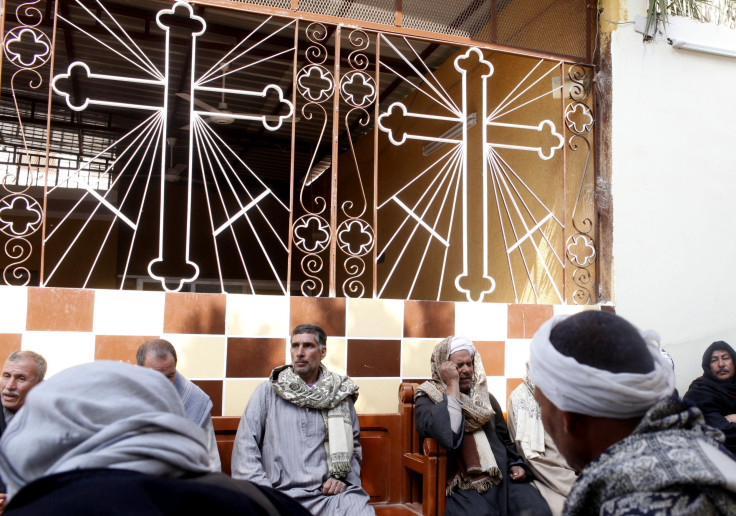Egypt Anti-Christian Violence: Church Commemorating ISIS Coptic Victims Attacked

At least seven people were wounded in an attack on a Christian church in the Egyptian province of Minya late Friday, in the latest incident of violence against the country’s Coptic Christian minority. The church had been established to commemorate the 20 Coptic Christians beheaded in Libya by the Islamic State militant group. Thirteen of the victims came from Minya’s al-Our village, where the church was being built, Daily News Egypt reported Sunday.
Coptic residents of al-Our had obtained permission to build the church in the aftermath of the beheadings in Libya, which left the impoverished village’s Christian community devastated. Thousands of people had mourned the victims following the release of an Islamic State video last month showing the men being executed. The beheadings prompted the Egyptian government to begin an air campaign in Libya targeting the militant group, also known as ISIS.
In the weeks since the massacre, plans to honor the victims with a church dedicated to their memory have been igniting sectarian tensions in the province, which is home to one of the largest concentrations of the country’s Coptic minority. Coptic Christians are estimated to make up 10 to 20 percent of the Egyptian population.
Some of al-Our’s Muslim residents had protested the church’s construction and particularly its placement at the entrance of the village, DNE reported. Following midday prayers on Friday, scores of young Muslims gathered in front of the site where the church was being built to rally against its construction. While the crowd eventually dispersed without incident, a small group of men targeted the site with Molotov cocktails later in the evening.
Violence between Muslim and Christian communities in Minya has become more frequent since 2013, when Egypt’s first democratically elected president Mohammed Morsi was deposed in a coup by the military. In the immediate aftermath of the violent dispersal of Muslim Brotherhood sit-ins in Cairo in August 2013, at least 42 churches were attacked across the country, with at least three Coptic Christians and one Muslim killed in Minya, according to Human Rights Watch. Some supporters of Morsi, who was supported by the now-banned Muslim Brotherhood, believe Christians had a role in his overthrow and reprisal attacks against the minority group have become increasingly common in the southern Egyptian province.
Some attribute the root causes of the the province’s sectarian tensions to the government's neglect of southern Egypt over the past decades. “[Minya] lacks the development and projects needed to sap the energy of young people and protect them from people who exploit them in this kind of strife, such as the Muslim Brotherhood or other parties with particular interests," said the province’s security chief, Maj. Gen. Osama Metwally, in a 2014 interview with Al-Monitor. “We are faced with many difficulties, most important of which is that people here have highly volatile temperaments, with full-blown sectarian strife almost erupting as a result of trivial disputes that nearly become religious catastrophes.”
© Copyright IBTimes 2024. All rights reserved.




















